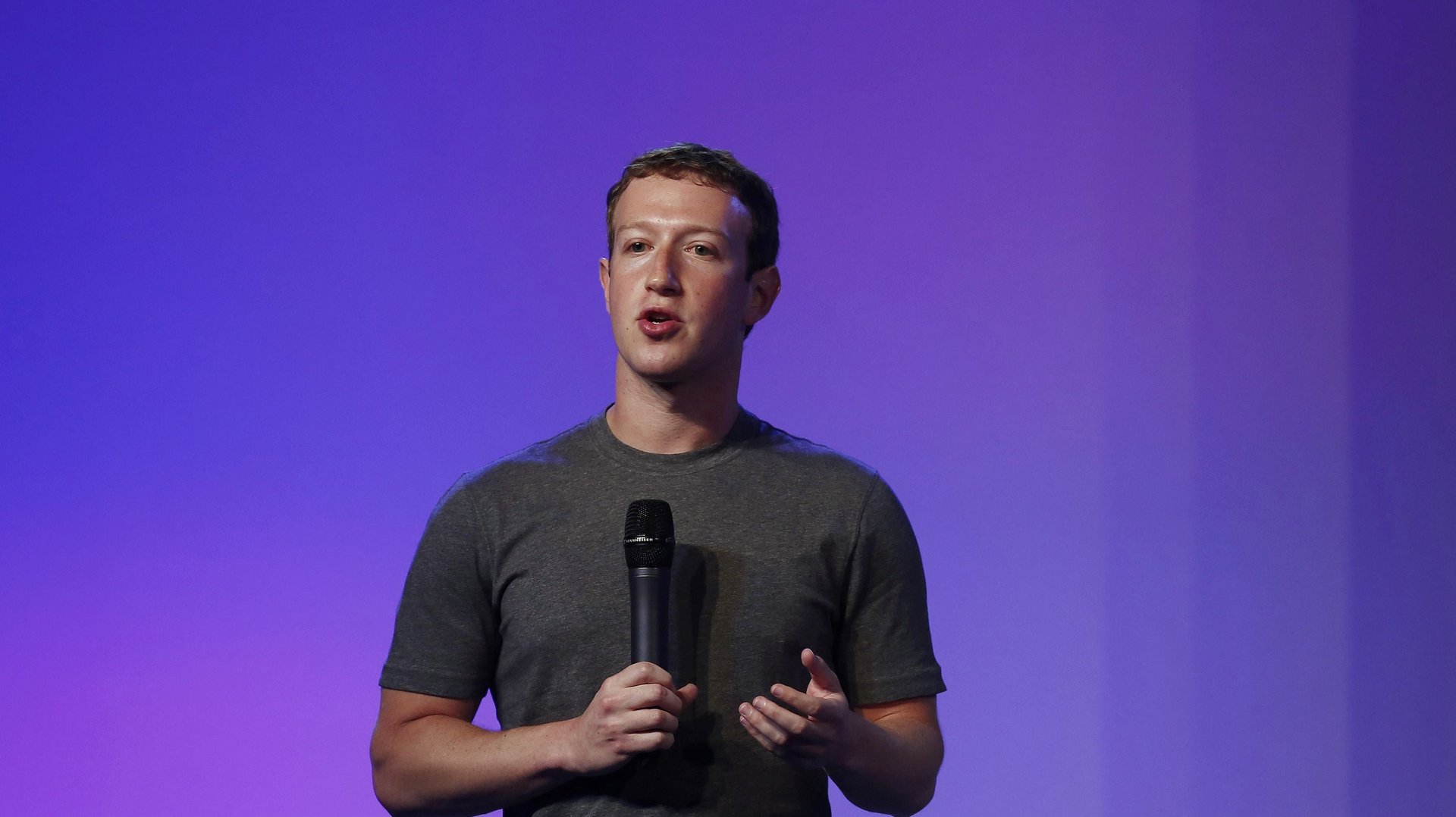The most important things Mark Zuckerberg just said in broken Chinese
Whether part of a bid to get Facebook unblocked or, as he professes, because he “wants to study Chinese culture,” founder Mark Zuckerberg awed the internet on Wednesday (Oct 22) with a 30-minute interview at Beijing’s Tsinghua University—in Mandarin. “Mark Zuckerberg nails a Q&A in Chinese like it’s no big deal,” gushed the Silicon Valley Business Journal, observing that he “slayed the crowd.” The Facebook clip of the interview—posted without subtitles—elicited like upon like from adoring fans, noting how “impressive” he was. Behold the first two minutes:


Whether part of a bid to get Facebook unblocked or, as he professes, because he “wants to study Chinese culture,” founder Mark Zuckerberg awed the internet on Wednesday (Oct 22) with a 30-minute interview at Beijing’s Tsinghua University—in Mandarin. “Mark Zuckerberg nails a Q&A in Chinese like it’s no big deal,” gushed the Silicon Valley Business Journal, observing that he “slayed the crowd.” The Facebook clip of the interview—posted without subtitles—elicited like upon like from adoring fans, noting how “impressive” he was. Behold the first two minutes:
Zuckerberg’s aplomb is indeed impressive. And for someone of his Mandarin level, speaking for 30 minutes and fielding questions isn’t easy. But those blown away by Zuck’s Chinese chinwag might want to know that though he’s clearly memorized a lot of relevant words, those were still shoehorned into a distinctly American-English grammatical order. Pronunciation is also a problem: He showed a plucky disregard for the tones that Mandarin has—one tonal slip-up had him saying that Facebook boasts eleven mobile users instead of 1 billion—and his enunciation was roughly on par with the clarity possible when someone’s stepping on your face.
That said, Zuckerberg didn’t shy away from some tougher topics—and he even tried a few jokes. And regardless of the slip-ups, his audience clearly loved the fact that he made an effort. Here are the most insightful nuggets from Zuckerberg’s interview:
The internet is very important: ”The majority of people who don’t have internet, don’t have the internet because they don’t know why they want to use the internet. If you asked me—sorry, if I asked you—if you didn’t have a phone, computer or internet and I asked you, ‘Do you want to use internet?’ You maybe would ask me, ‘Why do I want internet?’ So a lot of problems. But… internet creates work opportunities and economic development. Very important.”
His three reasons for studying Chinese: 1) to speak with his grandma-in-law and other inlaws; 2) China is a great country, and he wants to study its culture; 3) Chinese is hard, and he loves challenges.
The next big things in tech: ”Facebook is 10 years old this year. So if I ask 10 years from now, what should we develop? I decided we should develop three things. First, we need to connect the entire world. We need everybody to use the internet. Second, we want to develop (in English) artificial intelligence. I think 10 years from now computers will be better than humans at reading, listening, talking, and other things. So we are developing this. Third, when everyone is using mobile phones, I believe the next platform will be (in English) virtual reality. Oculus is the first product, but we hope there will be many products. Those three things.”
Advice to entrepreneurs: If it fails, try again. ”I feel that the best companies are started not because the founder wanted a company but because the founder wanted to change the world…. If you decide you want to found a company you maybe start to develop your first idea. And hire lots of workers. But you maybe have lots of ideas and you don’t know which one is best. If the first idea isn’t good, then your company isn’t good. But if you decide to change the world you should try to develop more ideas. If any idea is very good later you found the company.”
Facebook’s plan in China: “We’re already in China. We help Chinese companies grow their customers abroad. They use Facebook ads to find more customers. For example, Lenovo used Facebook ads to sell its new phone. In China I also see economic growth. We admire it. (in English) It’s, it’s…amazing. We want to help other parts of the world connect to China, such as large cities, national parks, (in English) um, yeah.”
His favorite color: ”I can’t choose red or green, because Facebook is blue!”
Advice to founders: don’t give up. ”I think the best thing to do is not give up. Founding a company is hard. Most of it isn’t smooth. You’ll have to make very hard decisions. You have to fire a few people. Therefore, if you don’t believe in your mission giving up is easy. The majority of founders give up. But the best founders don’t give up. Therefore, believe in your mission and don’t give up—very important.”
Is his Chinese better than his (Chinese-Vietnamese-American) wife Priscilla’s? “In Chinese, I know more words. But she also speaks Cantonese. Her listening is better than mine. Mine is really awful. One day I asked her why my listening was so bad and she said ‘your listening is bad in English, too.'”
Here’s the full 30-minute interview: